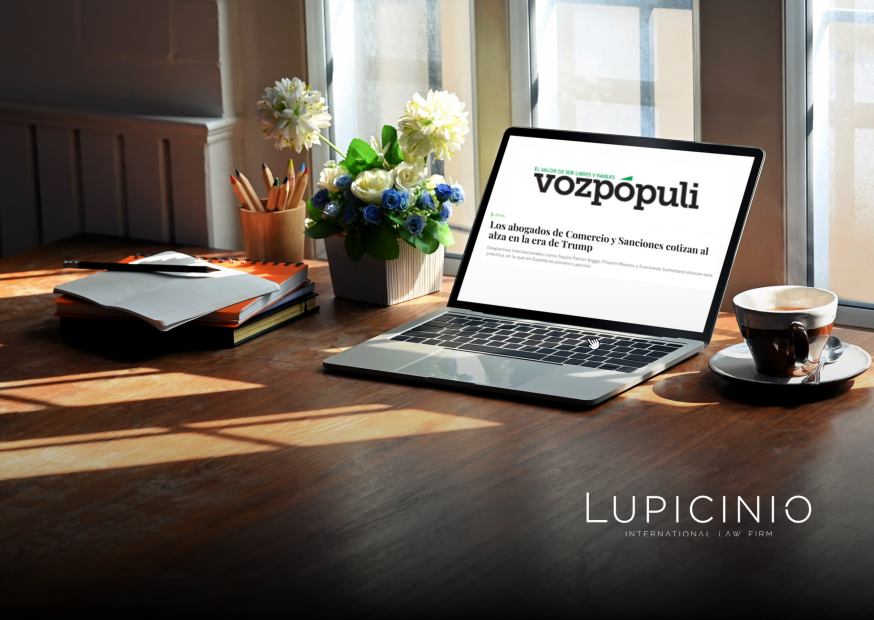With our attention focused on the new government, a letter from 4th June, in which various leaders of the European Union and the E3 (France, Germany and the United Kingdom) addressed the Trump Administration, has gone unnoticed. This letter is of the utmost importance because, (i) it is a determining point for relations between the Unites States and Europe, (ii) it finally draws up an outline of the protection mechanisms for European investments in Iran, and (iii) it recognizes a friction between the interests of the US and the EU, the main current challenge of the EU´s foreign policy.
The signatories (Federica Mogherini and the Ministers of Foreign Affairs, the Economy and Finance of the E3) request six concrete measures to protect the interests of European companies from the extraterritoriality of the North American sanctions against Iran, and therefore to protect their diplomatic efforts to save the Nuclear Agreement. Meanwhile, Trump has ostracized himself from the rest of the Nuclear Agreement signatories by casting himself against Iran, meaning that a positive response to the European request would contradict his position
The extraterritorial effects of the North American sanctions also affect European companies that do not have interests in the United States due to the powerful effect that they have over the banking and insurance systems worldwide. The oil company Total, the PSA group (Peugeot, Citroën, DS, Opel) and Siemens Germany were among the first to announce their closure of operations in Iran, but many others will be forced to take the same path – at the cost of considerable economic losses – if the current uncertainty persists.
In this context, Europe is trying to protect (i) its own political interests (containing nuclear proliferation to maintain the fragile stability in the region), as well as (ii) the economic interests of its companies. The protection of investments is, in this instance, much more than just a commercial policy, it is as a matter of state at a European level.
Six measures requested by the European Union
- General exceptions to EU companies. Any European companies which do not operate in a sector subject to European sanctions (especially the military and nuclear energy sectors) could continue their operations in Iran smoothly. The major difference with how they have operated thus far would be that they would have to look for suppliers other than North Americans, as their products could no longer be exported or re-exported in to Iran.
- Exceptions for sectors. In particular, for the pharmaceutical and health sectors, the automotive industry, civil aviation and infrastructure. Of particular note is the case of Airbus, which has signed a contract with Iran for the sale of 100 aircraft — of which only 3 have been effectively delivered due to problems with ensuring the necessary financing in international markets. The other aeronautical giant, the American company Boeing, had also signed a contract with the Islamic Republic (for an aggregate value of 20 billion dollars), which it has announced it will rescind as a result of the re-imposition of the sanctions.
- Maintenance of banking relations with the Iranian system, primarily the access of the Central Iranian Bank to the SWIFT system. The SWIFT system is a cooperative network founded in Belgium which in the past has been an effective tool in the application of sanctions in Iran by disconnecting Iranian banks from the network to isolate them from the international banking system. However, the reconnection of these financial institutions with the signing of the Nuclear Agreement did not entail the automatic restoration of normal banking relations. Banks have continued to be weary of establishing relationships with Iranian banks, and the zeal of their compliance departments has affected the obtaining of finance, the process of payments, and even the opening of accounts of Iranian citizens in European countries. As a consequence, European companies in Iran have consistently faced delays and operational difficulties. The maintenance of access to the SWIFT system is, although not sufficient, a necessary condition for European companies to continue working on their operations in Iran. SWIFT has not yet discussed the matter, but it seems unlikely that it will confront the Trump Administration and the alternative would be the creation of a parallel and alternative system through the Central European Bank.
- Extension of the transition periods for the closing of operations. Right now, the US has established deadlines for the dismantling of any businesses in or with Iran to end by August and November. This is an insufficient period for companies to disinvest in Iran without suffering large losses in the value of their investments.
- Maintenance of the General Licence H. This licence would allow the foreign subsidiaries of American companies to continue with their business in Iran without having to request special licenses for it.
- Securing the exception for embassy bank accounts. The Trump Administration will almost certainly grant this request.
Determining moment for European Diplomacy
The American press has interpreted the European Charter as a sign of its diplomatic weakness as a bloc. However, the prioritisation of diplomatically agreed solutions has been the norm in European-US relations, and European leaders remaining faithful to this tradition in the face of the new style of US foreign policy is perfectly compatible with their maintaining a firm and united diplomatic position.
Europe’s position in this matter, acting as a single unwavering block, could signify a turning point in the way the EU faces the new geostrategic challenges that it is confronted with. The measures it takes will determine the strength of its foreign policy regarding our traditional transatlantic ally and will be both an important step toward the protection of European interests in Iran and a major step towards the consolidation of our common foreign policy.
L’union européenne face au défi iranien de Trump
Notre attention étant concentrée sur le nouveau gouvernement, une lettre datée du 4 juin dernier est passée inaperçue en Espagne. Dans cette lettre, plusieurs dirigeants de l’Union européenne ainsi que l’E3 (la France, l’Allemagne et le Royaume-Uni) se sont adressés à l’administration Trump. Cette lettre est d’une très grande importance, car (i) elle représente un point déterminant pour les relations entre les États-Unis et l’Europe ; (ii) elle définit enfin les grandes lignes des mécanismes de protection des investissements européens en Iran ; et (iii) reconnait une friction entre les intérêts des États-Unis et ceux de l’UE, laquelle constitue le principal défi actuel de la politique étrangère communautaire.
Les signataires (Federica Mogherini ainsi que les Ministres de l’Extérieur et de l’Economie et finances du E3) réclament six mesures concrètes afin de protéger les intérêts des entreprises européennes face à l’extraterritorialité des sanctions américaines à l’encontre de l’Iran, et donc afin de protéger leurs efforts diplomatiques pour sauver l’Accord Nucléaire. Trump, quant à lui, s’est enfermé dans une position face à l’Iran que le reste des signataires de l’Accord Nucléaire ne partage pas, et cette position se verrait affaiblie en cas de réponse positive aux exigences européennes.
Les effets extraterritoriaux des sanctions américaines affectent même les entreprises européennes n’ayant pas d’intérêts aux États-Unis, au vu du puissant effet que celles-ci ont sur les systèmes bancaires et d’assurances au niveau mondial. La compagnie pétrolière Total, le groupe PSA (Peugeot, Citroën, DS, Opel) et Siemens Allemagne ont été parmi les premiers à annoncer la fermeture de leurs opérations en Iran, mais de nombreux autres se verront contraints de suivre le même chemin, au prix de pertes économiques énormes, si la présente situation d’incertitude persiste.
Dans ce contexte, l’Europe essaye de protéger (i) ses propres intérêts politiques (endiguer la prolifération nucléaire afin de maintenir la fragile stabilité de la région) ; ainsi que (ii) les intérêts économiques de ses entreprises. La protection des investissements est ici bien plus qu’une politique commerciale, et s’érige comme affaire d’État au niveau européen.
Les six mesures réclamées par l’Union Européenne
- Exceptions générales pour les entreprises européennes. Toute entreprise européenne qui n’opère pas dans un secteur faisant l’objet de sanctions européennes (le secteur militaire et l’énergie nucléaire surtout) pourrait continuer ses opérations en Iran sans heurts. La principale différence avec la manière dont elles avaient opéré jusqu’à présent serait qu’elles devraient chercher des fournisseurs qui ne soient pas américains, étant donné que les produits de ces derniers ne pourront plus être exportés ni réexportés vers l’Iran.
- Exceptions par secteur. En particulier, pour les secteurs pharmaceutique et sanitaire, le secteur automobile ainsi que l’infrastructure et l’aviation civiles. Le cas d’Airbus, qui a signé un contrat de vente de 100 avions avec l’Iran dont seuls 3 ont été effectivement livrés en raison des problèmes pour assurer le financement nécessaire sur les marchés internationaux, est un cas particulièrement important. L’autre géant aéronautique, l’américain Boeing, avait aussi signé un contrat avec la République Islamique (d’une valeur totale de 20 milliards de dollars) et a déjà annoncé qu’il résilierait ce contrat à la suite de la réimposition des sanctions.
- Maintien des relations bancaires avec le système iranien, principalement l’accès de la Banque Centrale iranienne au système SWIFT. Le système SWIFT est un réseau coopératif fondé en Belgique qui a été dans le passé un outil efficace dans l’application des sanctions contre l’Iran, en déconnectant les banques iraniennes de son réseau afin de les isoler du système bancaire international. La reconnexion de ces institutions financières avec la signature de l’Accord Nucléaire, n’a toutefois pas entrainé le rétablissement automatique de relations bancaires normales. Les banques ont continué à se montrer réticentes à toute relation avec des banques iraniennes, et leur zèle a affecté l’obtention de financement, la procédure de payement et même l’ouverture de comptes en banque de citoyens iraniens au sein de pays de l’UE. En conséquence, nos entreprises en Iran se sont constamment heurtées à des retards et des difficultés opérationnelles. Le maintien de l’accès au système SWIFT n’est donc pas suffisant pour que les entreprises européennes puissent continuer à travailler en Iran, mais il est en tout cas nécessaire. Pour le moment, SWIFT ne s’est pas prononcé sur le sujet, mais il semble improbable qu’il aille à l’encontre de l’administration Trump, de sorte que l’alternative serait la création d’un système parallèle et alternatif à travers de la Banque Centrale Européenne.
- Prolongement des périodes de transition pour la clôture des opérations. A l’heure actuelle, les échéances américaines pour le démantèlement des entreprises en Iran ou avec l’Iran se terminent en août et novembre 2018. Cette période est insuffisante pour que les entreprises retirent leurs investissements en Iran sans subir d’importantes pertes quant à la valeur de leurs investissements.
- Maintien de la Licence Générale H. Cette licence permettrait aux filiales étrangères d’entreprises américaines de continuer leurs affaires en Iran sans devoir demander de licences spéciales pour ce faire.
- Sécurisation de l’exception pour les comptes bancaires des ambassades européennes en Iran. Cette demande sera certainement accordée par l’administration Trump.
Un moment déterminant pour les diplomatique européenne
La presse américaine a interprété la lettre européenne comme un signe de sa faiblesse diplomatique en tant que bloc. Mais la priorisation de solutions diplomatiques consensuelles a toujours été la norme dans les relations entre Etats-Unis et Europe, et le fait que les dirigeants européens restent fidèles à cette tradition face au nouveau style de politique extérieure des Etats-Unis est parfaitement compatible avec le maintien d’une position diplomatique ferme et unie.
La position de l’Europe sur ce sujet, agissant comme un bloc uni et sans fissures, peut marquer un avant et un après dans la manière dont l’UE affronte les nouveaux défis géostratégiques qui se présentent à elle. Les mesures qu’elle prend détermineront la force de sa politique extérieure face à notre traditionnel allié transatlantique et sera à la fois un pas important pour la protection des intérêts européens en Iran, ainsi qu’un pas important pour la consolidation de notre politique étrangère commune.






